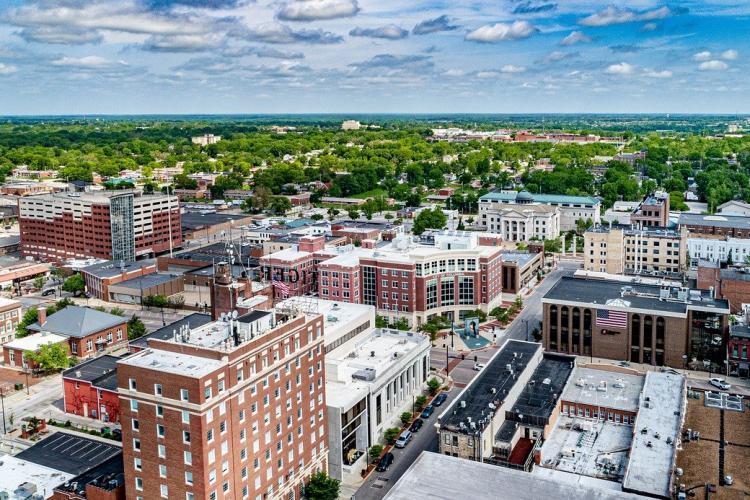
The Midwest is leading the way in efforts to advance Building Performance Standards. With the launch of the Biden-Harris Administration’s new Building Performance Standards Coalition, eight of the 33 state and local governments that signed on to make buildings healthier, more efficient and more affordable hail from our region. The coalition aligns with President Biden’s goals to retrofit four million buildings and two million homes in his first term, and we are proud to see Midwestern cities at the forefront of these plans. The jurisdictions in the overall coalition represent nearly 20% of the total building square footage in the United States.
A Building Performance Standard (BPS) is a policy that sets performance requirements for existing buildings. The requirements vary by jurisdiction and may set limits on energy consumption or GHG emissions. St. Louis, Missouri is the only jurisdiction in the Midwest that has passed a BPS, but interest is growing as existing buildings represent an enormous opportunity to help mitigate the climate crisis.
The national Building Performance Standard Coalition is actively supported by multiple stakeholders including labor unions, philanthropic institutions and non-governmental organizations.[1] These diverse groups have come together to develop programs and policies that move the building industry towards a more sustainable future, at a lower cost and with less energy waste. The goals of this coalition include creating good-paying union jobs, lowering energy bills, increasing safety from pollution and reducing emissions from buildings.
The coalition is reliant upon collaboration and partnerships and knows that equity should be at the forefront of the development process for these standards. A well-designed BPS can contribute to improved occupant health and lower health care costs through improved indoor air quality and a healthier, more resilient space to work and live. By lowering health risks, a BPS can be one small step toward addressing the disproportionate energy burdens that low-income communities and communities of color face across the Midwest and the United States.
This commitment to energy justice has been a consistent priority of the Biden-Harris administration, starting with the appointment of Shalanda Baker - who shared her insights in a keynote speech at MEEA's 2022 Midwest Energy Solutions Conference - as the Deputy Director for Energy Justice at the U.S. Department of Energy. In discussing equity as it relates to the national BPS Coalition, the administration emphasizes that when standards are developed with frontline communities, they more effectively address the needs of the community. In support of that viewpoint, the Coalition includes leaders in community engagement and program design, with expertise specific to the building industry, who are eager to provide the strategic assistance needed to ensure the policies and programs are as equitable as possible.
The new BPS Coalition also has substantial benefits for businesses and building owners. By attracting higher occupancy rates and increasing revenue, high-performing buildings are a smart choice for businesses, and the Coalition is developing the tools necessary to make this possible. The Biden-Harris administration is equipping the Coalition with resources to support program and policy development including financing options, analytical support and other tools to help states and municipalities get started, like this white paper published by the Environmental Protection Agency that can be used to inform the development of a BPS. These resources all come in addition to earlier funding that can also be put towards BPS efforts, like the more than $25 million the Office of Energy Efficiency and Renewable Energy has granted in support of workforce development across the energy industry.
Each of the 33 cities and states signed on to the Coalition have a goal of advancing BPS legislation in their area by Earth Day (April 22) 2024. The Biden-Harris administration committed to a goal of its own: it has charged an interagency team of experts to develop a BPS for the entire portfolio of federal buildings. With BPS efforts starting up across the industry, we look forward to supporting the eight coalition cities in our region and all others who join them. The Midwestern member cities are:
- Ann Arbor, MI
- Chicago, IL
- Columbus, OH
- Evanston, IL
- Grand Rapids, MI
- Kansas City, MO
- Milwaukee, WI
- Saint Louis, MO
Find more on the BPS Coalition and the other members here.